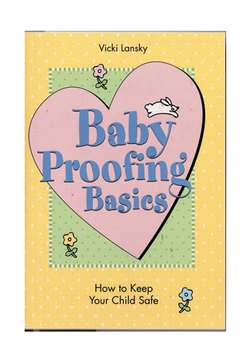Читать книгу Baby Proofing Basics - Vicki Lansky - Страница 16
На сайте Литреса книга снята с продажи.
MEDICINES AND PRESCRIPTIONS
ОглавлениеMedicines are usually best kept under lock and key. Or keep them in a room other than the bathroom, such as the kitchen, despite the inconvenience. Be aware that the stepstool that makes it possible for your toddler to reach the bathroom sink will also help him to reach the medicine cabinet or other high and interesting places in the bathroom. Remember, high is not necessarily safe. But at the very least, keep items out of sight and out of reach.
Get a special locking medicine chest (or improvise — even a tackle box may work for you) or use a childproof lock on your existing cabinet. Open it only to get something out and lock it again before you leave the room.
Be sure all medicines are in child-resistant containers and that they’re kept tightly closed. Childproof caps don’t necessarily stop a child from opening a container. They delay the time it takes for some children to accomplish this.
Keep adult medicines separate from children’s so you don’t mix them up in the middle of the night. And don’t take any chances by giving medicine in the dark.
Don’t save prescription containers. When the medicine is gone or outdated, dispose of the bottle or box
Don’t save old prescription medicines, and above all, don’t use them for your children. Dispose of outdated pills and liquids carefully. Illnesses that may seem identical don’t always require the same treatment. And outdated prescriptions can do more harm than good.
Overdosing on children’s vitamins rates among the top phone calls received by poison control centers. These colorful tablets can be dangerous in large doses, especially those that are iron fortified.
Don’t give over-the-counter antihistamines to children under the age of two without your doctor’s approval. Babies susceptible to sleep apnea are particularly vulnerable to the sedatives in many antihistamines.
And don’t tell your child a certain medicine is “good” or “tastes like candy.” It’s better to have to struggle a little to get it down than to have your child want more.
If you child does manage to swallow or eat any medicine, get whatever you can out of the mouth and call your poison control center (1-800-222-1222) immediately. Have the bottle in your hand so you can tell them what was ingested. They will also want to know your child’s weight and age.
